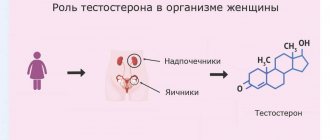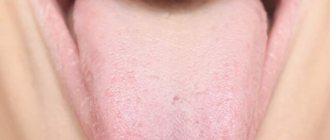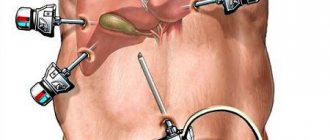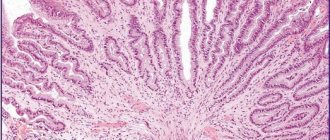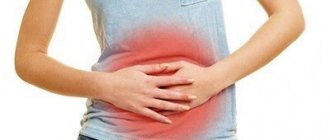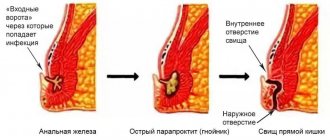Digestive problems, also known as indigestion, are a common condition. It is estimated that they affect one in three people in the general population. Dyspeptic symptoms may be temporary or permanent, may be associated with certain foods, and may be functional or caused by gastrointestinal diseases. Their treatment often involves minor changes in diet, but may also require complex and lengthy drug therapy.
Symptoms of indigestion
Digestive disorders can manifest themselves in various symptoms2:
- rumbling in the stomach, flatulence;
- heaviness in the stomach after eating;
- abdominal pain;
- constipation, diarrhea, feeling of incomplete bowel movement;
- nausea, vomiting.
Symptoms of digestive disorders in children can appear even after minor overeating or changes in the usual diet, since the children's digestive tract can be sensitive to unusual foods. If a child's indigestion is caused by a bacterial or viral infection, signs of intoxication may appear or the temperature may rise2. In teenagers, digestive problems may arise due to frequent snacks on the run or fast food, which can lead to problems such as gastritis or duodenitis. Gastritis is a familiar name, but duodenitis may sound scary. In fact, everything is simple: duodenitis is associated with an inflammatory process in the intestines, which, in turn, can lead to poor digestion of food. This occurs due to the fact that digestive enzymes, which help the body break down and absorb food, “suffer”2.
A similar relationship (inflammation in the intestines and digestive problems) can also occur in other conditions, for example, intestinal infections, allergic reactions, rotavirus infections, etc.2.
Causes of functional disorders of the gastrointestinal tract
There are 2 main reasons:
- Genetic predisposition. FGITs are often hereditary. This is confirmed by the frequent “family” nature of violations. During examinations, genetically transmitted features of the nervous and hormonal regulation of intestinal motility, the properties of receptors in the walls of the gastrointestinal tract, etc. are found to be similar in all (or across generations) family members.
- Mental and infectious sensitization. These include acute intestinal infections, difficult conditions of a person’s social environment (stress, misunderstanding from loved ones, shyness, constant fears of various nature), physically difficult work, etc.
Causes of indigestion
Each organ of the digestive system takes part in the digestion of food and the removal of metabolic products from the body2.
The most common causes of indigestion are 2:
- the habit of eating in a hurry, on the run;
- the predominance of fats and simple carbohydrates, semi-finished and instant foods in the diet;
- lack of plant products in the diet (vegetables, fruits, legumes and whole grains);
- lack of digestive enzymes resulting from poor nutrition, inflammation in the intestines, disruption of the digestive system;
- constant stress.
Digestion is one of the steps of another complex and vital process, metabolism. Failures in the process of digesting food (digestive disorders) not only add physical inconvenience, they can significantly affect well-being.
Causes of digestive problems
Dyspepsia may have an organic cause - it is caused by gastrointestinal diseases, for example, gastroduodenitis, enteritis, intestinal polyps, stomach or intestinal cancer. But much more common is the so-called functional dyspepsia, the cause of which is not fully understood.
The following mechanisms of functional dyspepsia are postulated:
- motility disorders of the upper gastrointestinal tract - too slow gastric emptying, accumulation of gastrointestinal contents from the duodenum to the stomach;
- excessive secretion of hydrochloric acid and its too intense effect on the mucous membrane of the stomach and duodenum;
- abnormal reaction of the gastrointestinal mucosa to the composition, temperature, composition and structure of food.
Treatment of indigestion
Basic principles of treating digestive disorders2:
- adjusting the diet towards a healthy and nutritious diet.
- healthy sleep (for an adult 7-9 hours).
- giving up alcohol and smoking, which irritate the mucous membrane of the stomach and intestines, maintaining a constant inflammatory process. If sudden changes in lifestyle are difficult, you need to at least limit bad habits. For example, reduce the number of cigarettes you smoke.
The main goal of treatment is to restore the natural process of food digestion, eliminate digestive problems, and relieve symptoms. To do this, the following rules must be observed:
1. It is not recommended to overeat before bed, because... food can take a long time to pass through the digestive tract and cause discomfort.
2. Nutrition should be complete and varied, consisting of foods high in fiber.
3. In cases of malnutrition (for example, when eating a lot of fatty foods), digestion can be supported with special medications.
Treatment of dyspepsia
Before starting treatment for intestinal dyspepsia, the type of disease is determined in order to select the right diet on the first day of therapy. In case of nutritional dyspepsia, the patient is advised to completely abstain from eating for two days. The transition to a normal diet should be gradual and consistent. In the case of fermentative dyspepsia, the patient should abstain from foods rich in carbohydrates. For fatty dyspepsia, a low-fat diet is prescribed; for putrefactive dyspepsia, the patient must limit the intake of protein foods. Treatment of enzymatic dyspepsia requires taking medications containing digestive enzymes.
Treatment of functional dyspepsia
Diet therapy and giving up bad habits play a very important role in the treatment of functional dyspepsia. Nicotine, alcohol, coffee, disrupting gastrointestinal motility, can provoke relapses of the disease. A balanced diet for patients in this case involves frequent and small meals, and it is recommended to significantly reduce the content of saturated fatty acids in their diet.
In the dyskinetic form of the pathology, the main drugs for the treatment of dyspepsia are prokinetics (metoclopramide and domperidone), which have a beneficial effect on the motor function of the gastrointestinal tract. It should be remembered that in 20-30% of patients, metoclopramide, especially with long-term use, causes undesirable side effects from the central nervous system in the form of drowsiness, fatigue and anxiety, therefore the drug of choice for the treatment of functional dyspepsia is domperidone, which does not cause such side effects.
Treatment of intestinal dyspepsia
Treatment of fermentative dyspepsia consists of limiting, or better yet completely eliminating, carbohydrates from the diet for 3-4 days. The general condition of patients with this form of dyspepsia suffers slightly. Acute fermentative dyspepsia can be quickly eliminated with the right diet. However, sometimes if the dietary regimen is not followed, dyspepsia can become chronic. The aggravating factor is achylia. Dyspepsia in some cases can develop into chronic enteritis and chronic enterocolitis. After 1-2 fasting days, you should prescribe an increased amount of proteins (cottage cheese, lean meat, boiled fish), meat broth with a small amount of white bread. In the future, water porridge, fruit purees and jelly are gradually included in the diet (see Diet No. 4 according to Pevzner). After 2-3 weeks, vegetables and fruits are allowed.
If diarrhea does not go away quickly, prescribe calcium carbonate 0.5-1 g 3-4 times a day, magnesium perhydrol 0.5 g 3 times a day. For a long time, the consumption of vegetables rich in coarse plant fiber is prohibited - cabbage, legumes, cucumbers, beets, etc.
Treatment of putrefactive dyspepsia also involves prescribing a diet. After one hungry day, they switch to a diet rich in carbohydrates. It is advisable to prescribe fruit juices and grated apples 1-1.5 kg per day for 2-3 days. Then the diet includes mucous infusions of rice, semolina porridge with water, crackers, and white bread. After 5-7 days, add butter, fresh lean fish, chicken, vegetable soups, mashed potatoes or carrots. Among medications, natural gastric juice, bismuth nitrate, pancreatin, and chloramphenicol are recommended.
Treatment of fatty dyspepsia comes down to limiting the amount of fat consumed in food. The diet includes complete animal proteins: lean meat, low-fat cottage cheese, boiled fish, etc. The consumption of carbohydrates is moderately limited. Medicines prescribed include calcium carbonate, bismuth, and vitamins - ascorbic acid, nicotinic acid, cyanocobalamin.
LDC "Neuron"
- < Back
- Forward >
CREON® capsules for better digestion
The digestive process is inextricably linked with pancreatic enzymes. These special substances perform an important role: they help the body digest and absorb food. Errors in nutrition, consumption of fatty foods or incompatible foods can affect your well-being and cause heaviness after eating, discomfort, and bloating. This happens when the body’s own strength (the usual amount of enzymes) is not enough to digest what is eaten.
Creon® contains digestive enzymes identical to those produced by the body3. By delivering them from the outside, the drug complements its own digestion and helps cope with the symptoms of indigestion: heaviness and discomfort after eating.
To learn more
Creon® is a convenient modern product in the form of capsules, each of which contains hundreds of small particles - minimicrospheres. Each of the Creon® particles does not exceed the size of 1.7 mm - they are so tiny3. This size is designated for a reason: modern scientific works, Russian and world scale, are unanimous that an effective enzyme preparation should have particles less than 2 mm in size5-8. Today, only Creon® meets the size requirements*4 and is therefore considered the first choice for better digestion, which cannot be said about the well-known drugs in tablet form**1,4,5,9. Their time, unfortunately, has passed, and today they are recognized as the least effective5,9.
The Creon® capsule has no equal:
No. 1 in the world
for better digestion10
15 minutes
and Creon® is maximally active11, 12
Treatment of functional gastrointestinal disorders
Complex treatment includes dietary recommendations, psychotherapeutic measures, drug therapy, and physiotherapeutic procedures.
General recommendations for constipation: abolition of constipation medications, foods that contribute to constipation, intake of large amounts of fluid, food rich in ballast substances (bran), physical activity and elimination of stress.
If diarrhea predominates, the intake of coarse fiber into the body is limited and drug therapy (imodium) is prescribed.
If pain predominates, antispasmodics and physiotherapeutic procedures are prescribed.
Creon minimicrospheres® - what are their advantages?
1. Complete digestion of food. When it enters the stomach, the Creon® capsule quickly dissolves, and the smallest particles are evenly mixed with food3,12. This allows them to participate in the digestion of the maximum amount of food eaten.
2. 1 capsule of Creon® 10000 - this may be enough for heaviness after eating3. The number 10,000 indicates the amount of the lipase enzyme, which is responsible for the breakdown of fats. For comparison: in some well-known tablets the lipase content does not exceed 3,500 units, this is almost 3 times less than Creon® 10 0003. That is why their instructions for medical use indicate that an additional 2 to 4 may be required 13 tablets per dose.
More information about the action of the drug and its advantages over analogues can be found here. Creon® is recommended to be taken with meals or immediately after3.

